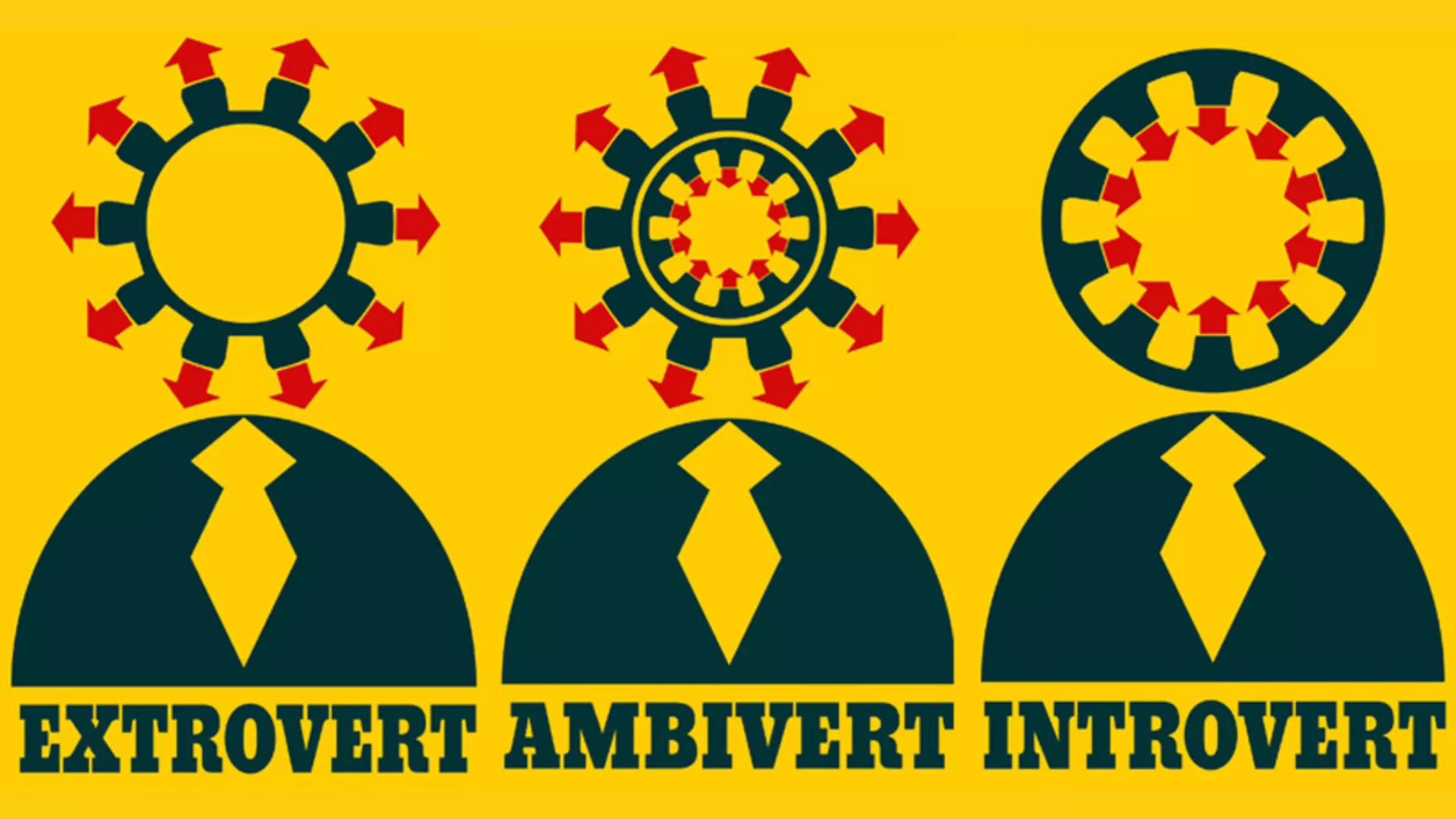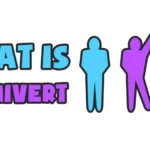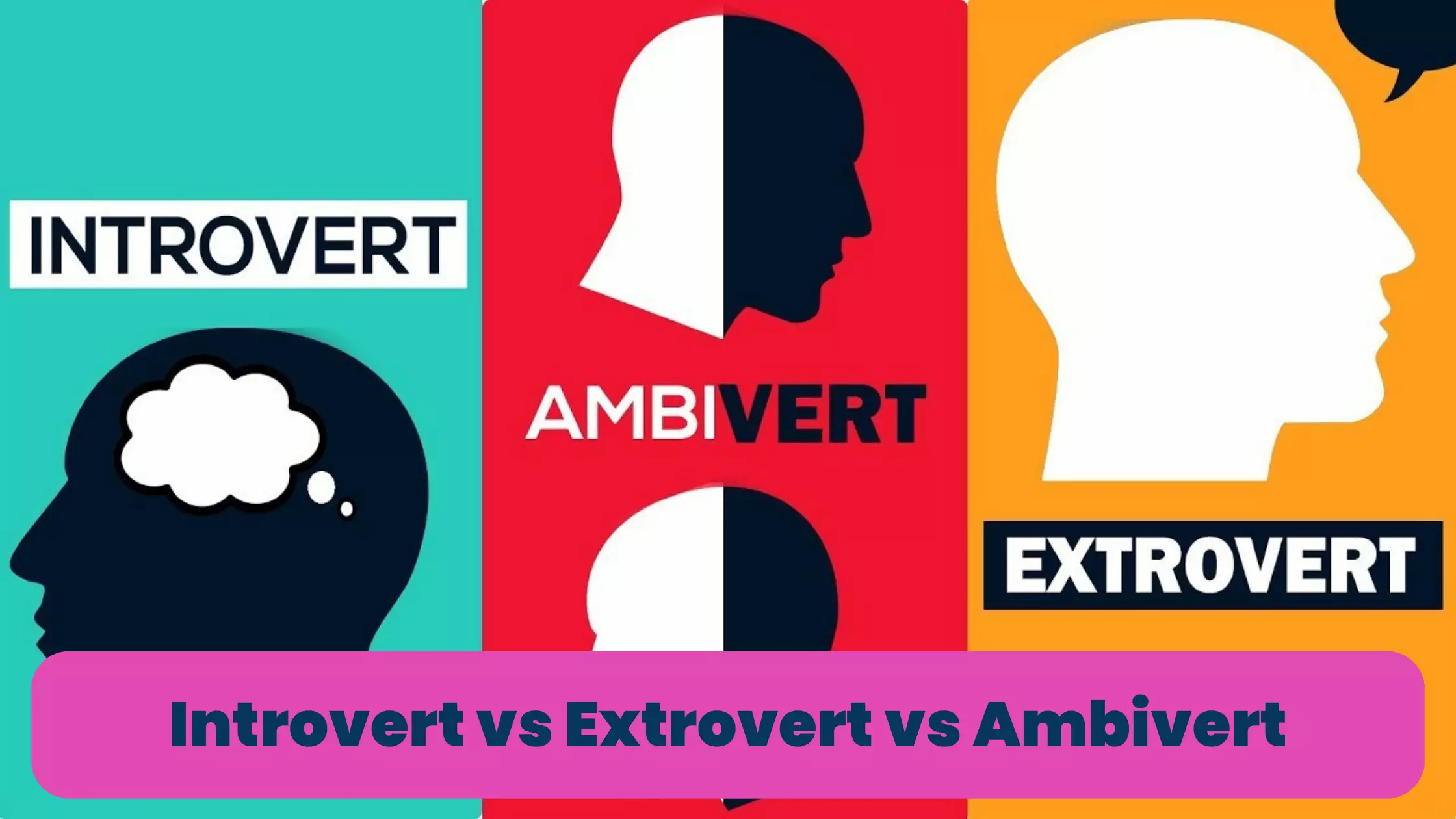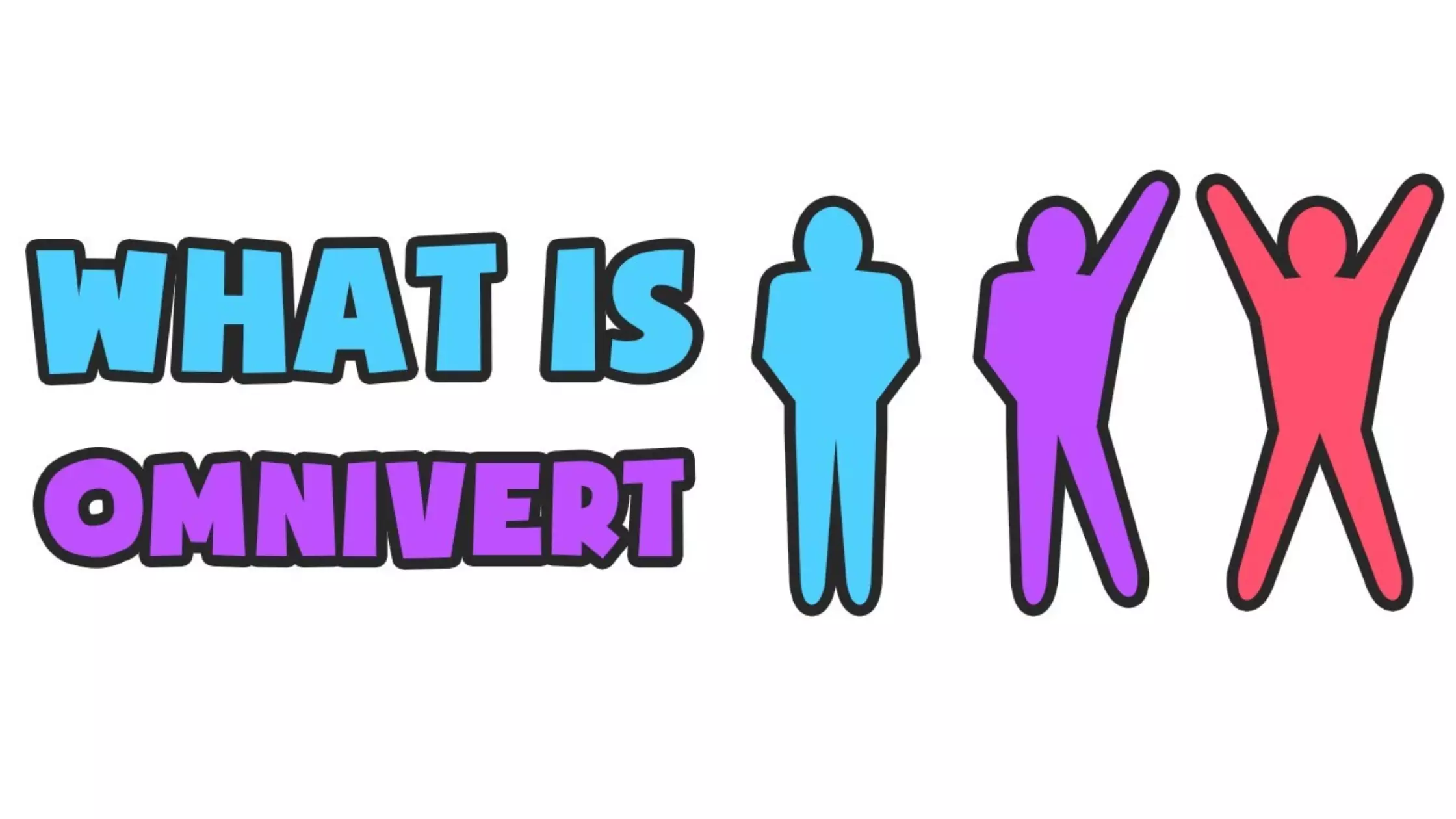In our diverse world, people exhibit a broad range of personalities and preferences when it comes to socializing, communicating, and interacting with others. While some individuals thrive in the company of others, others prefer quieter and more solitary experiences. This article delves into the intriguing world of introverts, extroverts, and ambiverts to shed light on their unique qualities, dispel common misconceptions, and help you determine which personality type might suit you best.
Introduction
Human personality is a complex tapestry woven with various threads, and one such thread is the degree of introversion or extroversion. Introverts, extroverts, and ambiverts represent three distinct categories within this spectrum of personality traits. By understanding the traits, benefits, and strengths of each personality type, individuals can gain valuable insights into their own inclinations and better navigate their personal and professional lives.
Understanding Introverts
Definition of Introversion
Introversion is not synonymous with shyness or social awkwardness, as often mistakenly assumed. Rather, it refers to a preference for internal mental states and a tendency to recharge through solitude. Introverts are inclined to focus inward, finding energy and inspiration in their own thoughts and inner worlds.
Traits and Characteristics of Introverts
Introverts possess a myriad of characteristics that distinguish them from extroverts and ambiverts. They tend to be reflective, introspective, and deep thinkers. They value solitude, enjoy meaningful conversations, and often engage in activities that allow for personal growth and self-reflection. Introverts are also known for their active listening skills, empathy, and ability to concentrate for extended periods.
Benefits and Strengths of Introverts
Introverts bring a unique set of strengths to the table. Their preference for introspection and contemplation fosters creativity, innovation, and the ability to think critically. They excel at tasks that require focus, attention to detail, and independent work. Introverts often demonstrate exceptional problem-solving abilities and are capable of making well-thought-out decisions. Moreover, their empathetic nature makes them excellent listeners and valuable friends or confidants.
Unveiling Extroverts
Definition of Extroversion
Contrary to introversion, extroversion is characterized by an inclination towards external stimuli and social interactions. Extroverts are energized by engaging with others, seeking social connections, and participating in group activities. They often thrive in lively and stimulating environments.
Traits and Characteristics of Extroverts
Extroverts possess distinctive qualities that set them apart. They are outgoing, expressive, and enthusiastic individuals who enjoy being the center of attention. They are skilled at initiating conversations, networking, and forming new relationships. Extroverts are often highly assertive and have an innate ability to communicate their thoughts and ideas effectively. They tend to be quick decision-makers and are known for their spontaneity and adaptability.
Benefits and Strengths of Extroverts
Extroverts bring a vibrant energy to social interactions and group dynamics. Their ability to effortlessly connect with others makes them valuable team players and leaders. They excel in roles that involve public speaking, sales, and negotiations. Extroverts are often excellent motivators, inspiring those around them. Their sociability also opens doors to networking opportunities and helps build strong professional relationships.
The Enigma of Ambiverts
Definition of Ambiversion
Ambiversion lies between introversion and extroversion, representing a more balanced personality type. Ambiverts display a blend of traits and characteristics from both ends of the spectrum. They possess the flexibility to adapt their behavior according to the situation and their energy levels.
Traits and Characteristics of Ambiverts
Ambiverts exhibit a unique combination of introverted and extroverted traits. They can engage in meaningful conversations and also enjoy spending time alone. Ambiverts possess the ability to listen actively and communicate effectively, making them adaptable to various social contexts. They often thrive in roles that involve both independent work and collaboration.
Benefits and Strengths of Ambiverts
Ambiverts have the advantage of versatility and adaptability. Their ability to toggle between introverted and extroverted tendencies enables them to understand and connect with a wider range of people. Ambiverts are skilled at finding common ground and striking a balance between the needs of individuals and groups. Their ability to empathize with others and effectively communicate their ideas makes them effective mediators and influencers.
Debunking Stereotypes and Misconceptions
Unfortunately, introverts, extroverts, and ambiverts are not immune to stereotypes and misconceptions. Introverts are often mislabeled as socially awkward or lacking in social skills, while extroverts are seen as shallow or attention-seeking. Ambiverts may be mistakenly considered indecisive or inconsistent. It is crucial to dispel these misconceptions and recognize the individual strengths and preferences that each personality type brings.
Introverts vs. Extroverts vs. Ambiverts: Finding the Best Fit
The best personality fit depends on various factors, such as social interaction preferences, work and team environments, communication styles, and personal relationships.
Social Interaction Preferences
Introverts tend to prefer small, intimate gatherings or one-on-one interactions, where they can engage in deep conversations. Extroverts, on the other hand, thrive in larger social settings and enjoy meeting new people. Ambiverts find satisfaction in a mix of social interactions, ranging from intimate settings to more expansive gatherings.
Work and Team Environments
Introverts often excel in tasks that require concentration and independent work, making them valuable in roles that involve research, analysis, or creative pursuits. Extroverts thrive in collaborative environments, where their ability to energize and motivate others can be harnessed. Ambiverts can adapt to various work environments, finding success in both independent and team-based tasks.
Communication Styles
Introverts tend to be thoughtful and deliberate in their communication, often choosing their words carefully. Extroverts, on the other hand, are comfortable expressing themselves openly and assertively. Ambiverts possess the ability to adjust their communication style, adapting to the needs of different individuals and situations.
Personal Relationships
Introverts value deep, meaningful connections with a select few individuals. They prefer quality over quantity when it comes to friendships and relationships. Extroverts thrive on social connections and often have a wide network of friends. Ambiverts enjoy a balance between close, intimate relationships and a broader social circle.
Harnessing the Power of Introversion, Extroversion, and Ambiversion
Understanding one’s own personality type and leveraging its strengths is key to personal and professional growth. Here are some tips for harnessing the power of introversion, extroversion, and ambiversion:
Embracing Self-Awareness
Developing self-awareness is crucial for understanding one’s preferences, strengths, and limitations. Reflect on your own inclinations and observe how you feel energized or drained in different situations. Self-awareness is the first step towards embracing and leveraging your unique personality traits.
Leveraging Strengths and Overcoming Challenges
Whether you identify as an introvert, extrovert, or ambivert, acknowledge your strengths and find ways to utilize them. Introverts can focus on their excellent listening skills and critical thinking abilities. Extroverts can capitalize on their networking and leadership qualities. Ambiverts can harness their adaptability and versatility to excel in various contexts. Additionally, identify and address any challenges associated with your personality type to enhance personal growth.
Nurturing Balanced Relationships
Recognize and appreciate the diversity of personality types in your personal and professional relationships. Seek to understand and accommodate the needs of others while also expressing your own preferences. Balancing alone time and social interactions is crucial for introverts, while extroverts should ensure they actively listen and provide space for others to express themselves. Ambiverts can navigate between different communication styles, fostering harmonious relationships.
Conclusion
In the debate of introverts, extroverts, and ambiverts, there is no definitive winner. Each personality type possesses its own strengths and benefits, and the best fit depends on individual preferences, circumstances, and personal growth goals. Embracing and understanding your own personality type, as well as appreciating the strengths of others, can lead to more fulfilling relationships, effective communication, and personal success.
FAQs
Q1: Can a person be both an introvert and an extrovert?
A: While it is not common, some individuals may exhibit both introverted and extroverted traits, commonly known as ambiverts. They display a balance between the two personality types, adapting their behavior to different situations.
Q2: Are introverts more creative than extroverts?
A: Both introverts and extroverts have the potential for creativity. However, introverts often thrive in solitary environments that allow for deep thinking and reflection, which can enhance their creative abilities.
Q3: Do ambiverts have an advantage over introverts and extroverts?
A: Ambiverts possess the advantage of adaptability, allowing them to navigate a wide range of social situations and environments. Their ability to toggle between introversion and extroversion can be advantageous in various contexts.
Q4: How can introverts improve their social skills?
A: Introverts can improve their social skills by gradually stepping out of their comfort zone, engaging in small group interactions, and practicing active listening. Building meaningful connections with others and seeking social support can also help in developing social skills.
Q5: Is it possible for an extrovert to become an introvert?
A: While it is unlikely for someone to completely switch from extroversion to introversion or vice versa, individuals can learn to balance their social interactions and appreciate moments of solitude, incorporating some introverted qualities into their lives.







